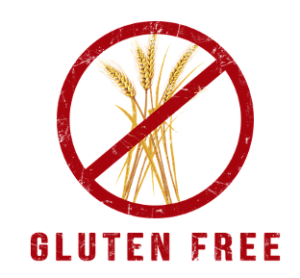If you came here for a quick answer, there is indeed a DNA test for coeliac disease. If you are interested in knowing more about this, you will have to continue reading.
 Article author: Cristina Fortuno PhD
Article author: Cristina Fortuno PhD
Dr Fortuno is genetic scientist with focus on human health, and has a PhD (University of Queensland) in Human genetics.
If you are reading this, you are probably already familiar with coeliac disease, sometimes written as “celiac disease” for our American friends. Coeliac disease is defined as an autoimmune reaction to eating gluten, and this can result in damage to the small intestine. Symptoms are varied, and can include chronic diarrhoea, abdominal pain and swelling, or anaemia. Given the popularity of gluten-free options in supermarkets and restaurants, it might seem surprising that the actual prevalence of coeliac disease in the world is only about 1.4%. A relatively more common issue is known as “non-coeliac gluten sensitivity”, which does not require a strict gluten-free diet.

Now let’s get to the point on this post: the genetics of coeliac disease. There are two genes whose variants are associated with an increased risk of developing coeliac disease, and these are HLA-DQA1 and HLA-DQB1 (HLA-DQ8). These genes are part of the human leukocyte antigen which is involved in the regulation of the immune system. Please note: not everyone with these variants goes on to develop coeliac disease so a positive genetic result cannot tell if you’re coeliac, however if you don’t have these variants your risk of having or developing coeliac disease is almost nil. This negative result can be especially useful to rule out coeliac disease when symptoms overlap with other diseases, when diagnosis with other methods is unclear, or when there is family history.

Fitgenes offers a DNA test including the above-mentioned genes as part of the FoodChoice genetic profile, In addition to coeliac risk, FoodChoice also includes other sections on lactose intolerance, alcohol intolerance, histamine intolerance, salt sensitivity, caffeine sensitivity, and food allergies. FoodChoice is available for purchase right here on our site.
If you think you might have coeliac disease or may have food sensitivities and intolerances, do consider consulting a suitable health professional. If you’d like to discuss with an independent Fitgenes-accredited practitioner please reach out and we can put you in touch with someone near you, or perhaps you’d prefer an online (Zoom) consult.
If that’s of interest and is right for you, reach out via our contact page and ask for the special rate and we’ll send you a voucher for $30 off an online FoodChoice report for reading all the way to the bottom!


